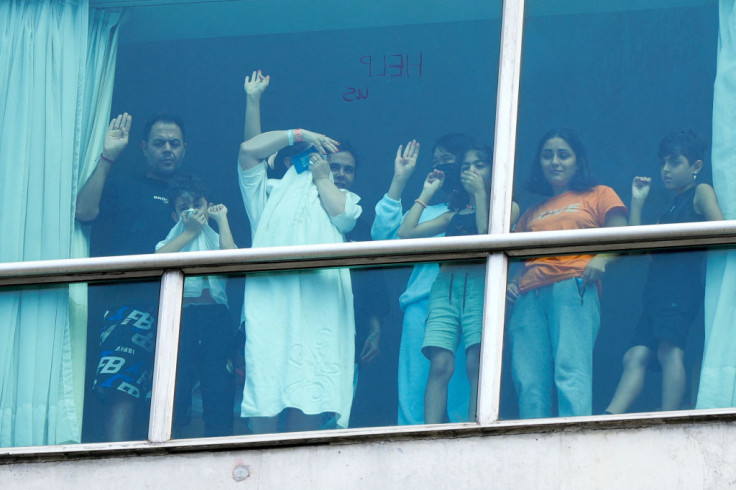
Migrants deported from the United States who were being held in a hotel in Panama have been relocated after a report showed harsh conditions that even led to an attempted suicide.
Local press saw people leaving the Decapolis Hotel in Panama City and getting on buses. A family member of an Iranian woman who is in the country told CNN that others had already been taken elsewhere.
The development came following a report from the New York Times that detailed migrants who arrived on the deportation flights were stripped of their passports and most of their telephones, and then locked in a hotel, barred from seeing lawyers. They were told they would soon be sent to a camp near the Panamanian jungle.
"Only a miracle can save us," Artemis Ghasemzadeh, a migrant from Iran, told The Times through a hidden cellphone. Panama barred journalists from visiting the migrants, but The Times was able to contact some people inside the hotel, all of whom said they were asylum seekers being held against their will.
Panamanian Security Minister Frank Ábrego told press on Wednesday that U.S. authorities had in fact taken migrants' phones, but claimed they were returned to them on arrival so they could communicate with their families. He added that they were prevented from leaving the hotel "for their own protection," and that authorities are organizing logistics both for those who accepted to be taken back to their home countries and the ones who don't want to. They have a right to apply for asylum in Panama, Abrego said, clarifying that the country has not done it nor it is planning to do so.
More deportees are expected to land elsewhere in Central America on Thursday, as Costa Rica becomes the latest country to receive migrants from third countries. According to The New York Times, they will be sheltered in a facility in the canton of Corredores. Although it is not clear how long deportees will have to wait before being repatriated, the Costa Rican government confirmed that it intended to "serve as a bridge" for them to return to their countries of origin.
Additionally, the Central American country announced that the repatriation process would be fully funded by the U.S. government and supervised by a United Nations agency called the International Organization for Migration.
© 2025 Latin Times. All rights reserved. Do not reproduce without permission.





